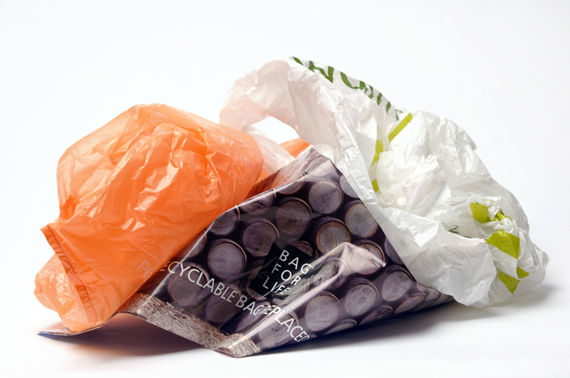Plastic litter debate ‘going off the rails’, says PAFA

The Packaging and Films Association has warned that the debate over banning plastic bags in the European Union is ‘going off the rails’.
The warning comes following the publication of an article by Italian MEP and rapporteur for the European Commission’s strategy on plastic waste in the environment Vittorio Prodi, on The Parliament website, which argues that the current proposals released by the European Commission on cracking down on plastic litter do not go far enough.
Under the proposed amends to the Packaging and Packaging Waste Directive (released in November 2013), member states will be required to reduce the consumption of plastic carrier bags with a thickness below 50 microns (as these were found to be less frequently reused than thicker ones, and often end up as litter), through ‘appropriate’ measures such as bag charges, national reduction targets, and marketing restrictions (subject to the internal market rules of the Treaty on the Functioning of the EU).
However, Prodi argued that the directive served ‘more [as] a theoretical suggestion than a concrete, legislative decision’.
In his article, he wrote: ‘We asked for robust measures to end the floating of 80 million tonnes of plastics in the oceans; we are worried about plastics' dangerous components entering the food chain and the consequences for human and animal health. We get, instead, an invitation to member states to 'dare' to reduce, through whichever means they deem appropriate, the consumption of lightweight shoppers, thinner than 50 micron, which is 0.05 mm.
‘What about the other plastic bags, the thicker ones? They can still be consumed and littered? They can still float on our seas for decades? What about the dangerous oxo-degradable plastic bags?’
He said the proposals could have instead ‘tackled all plastic packaging, which represents 40 per cent of all plastic waste’.
Prodi has also led calls for the EC to ban ‘the most hazardous plastics’, such as microplastics and those containing metal by 2020.
Debate is ‘going off the rails’
However, writing in response to Prodi’s article, PAFA CEO Barry Turner argued that ‘by targeting products and not behaviour’ the debate is in danger of ‘going off the rails’.
He said: “Our industry advocates a zero tolerance to litter which involves tackling littering at source and the behaviour that leads to litter. Surely that is the right way forward. You simply can't advocate that biodegradable products are the solution to littering as this could lead the consumer to believe that it's OK to litter as any product littered will simply disappear with time!
“Material choice should be governed by mechanisms within the existing waste framework and packaging directive properly applied and be chosen based on their merits in relation to resource efficiency.
“If we want to get serious about circular economies, resource efficiency and litter many governments and specifiers of packaging have the levers to pull already. Also there is plenty of good practice available to draw on.”
Turner went on to argue that the EU should not be trying to dictate blanket, federal policy to its member states, adding: “The role of the European Commission should be to point to the terms of best practice, set challenging but achievable goals by consensus with member states and then leave it to national governments to adapt policy to the local environment.
"Once it starts dictating direction and dismantling mechanisms that could be made to work if properly applied with consensus it is entering dangerous territory."
Turner concluded that he hoped that “by stepping back”, all those responsible for policy in the EC will "see the light".
Plastic bag bans in the UK
All the countries in the United Kingdom now have in place measures to charge for certain types of plastic bags in a bid to reduce litter.
Wales was the first country to introduce a charge, and has reportedly already seen bag use drop by 76 per cent, while Northern Ireland’s levy (which includes single-use bags of plant-based material as well as plastic) has seen some supermarkets reduce single-use bag consumption by 80 per cent.
Scotland is set to bring in its bag levy in October 2014, which will also cover single-use bags made from any material.
England’s plans to introduce a five-pence levy on single-use plastic bags from ‘autumn 2015’ were first announced in September 2013, but unlike Wales’s ban, it will not include reusable ‘bags for life’ or paper bags, nor would the levy apply to organisations with fewer than 250 employees.
This led the Environmental Audit Committee (EAC) to criticise the Department for Environment, Food & Rural Affairs (Defra) for making the charge ‘unnecessarily complicated’ and based ‘more on wishful thinking than hard evidence’.
Read more about the effect of hazardous plastic on the environment.






